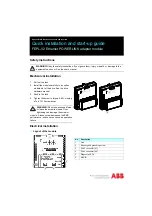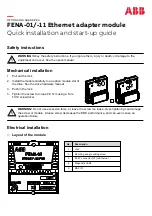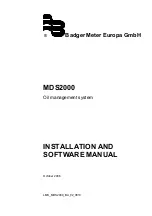
CHAPTER 5: SETTINGS
GROUPED ELEMENTS
L60 LINE PHASE COMPARISON SYSTEM – INSTRUCTION MANUAL
5-265
5
WATTMETRIC GND FLT 1 REF PWR
— This setting is used to calculate the inverse time characteristic delay (defined by S
ref
in
the following equations). A value of 1 pu represents the product of a 1 pu voltage (as specified in the overvoltage condition
for this element) and a 1 pu current (as specified in the overcurrent condition for this element.
WATTMETRIC GND FLT 1 ECA
— This setting adjusts the maximum torque angle of the element. The operating power is
calculated as:
S_op = Re(V
n
(I
n
x 1
∠
ECA)*)
Eq. 5-22
where
* indicates complex conjugate
By varying the element characteristic angle (ECA), the element can be made to respond to forward or reverse direction in
inductive, resistive, or capacitive networks as shown in the Wattmetric Characteristic Angle Response diagram.
WATTMETRIC GND FLT 1 PWR PKP DEL
— This setting defines a definite time delay before the inverse time characteristic is
activated. If the curve selection is set as “Definite Time”, the element operates after this security time delay. If the curve
selection is “Inverse” or one of the FlexCurves, the element uses both the definite and inverse time timers simultaneously.
The definite time timer, specified by this setting, is used and when expires it releases the inverse time timer for operation
(torque control).
WATTMETRIC GND FLT 1 CURVE
— Choose one of three methods to delay the operate signal once all conditions are met to
discriminate fault direction.
The “Definite Time” selection allows for a fixed time delay defined by the
WATTMETRIC GND FLT 1 PWR PKP DEL
setting.
The “Inverse” selection allows for inverse time characteristics delay defined by the following formula:
Eq. 5-23
where
m is a multiplier defined by the multiplier setting
S
ref
is the multiplier setting
S
op
is the operating power at the time
This timer starts after the definite time timer expires.
The four FlexCurves allow for custom user-programmable time characteristics. When working with FlexCurves, the
element uses the operate to pickup ratio, and the multiplier setting is not applied:
Eq. 5-24
Again, the FlexCurve timer starts after the definite time timer expires.
















































